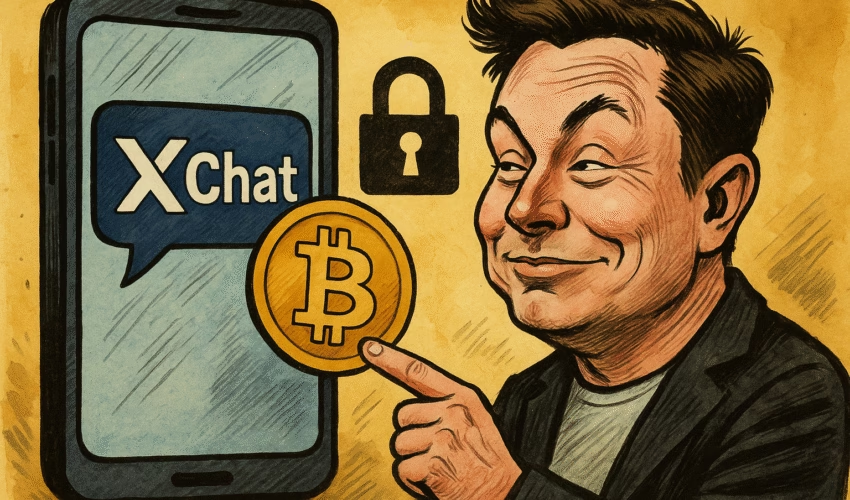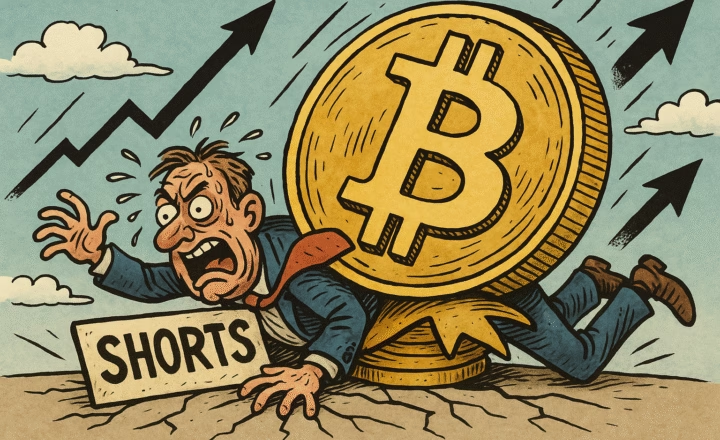Crypto Experts Clarify the Technical Details Behind Musk’s Claim as Platform Expands Secure Messaging and Payments
Elon Musk has announced that X, formerly known as Twitter, is rolling out a new direct messaging feature called XChat, which he claims will include “Bitcoin-style encryption.” The announcement has triggered widespread discussion across the cryptocurrency community, as technologists and Bitcoin developers have questioned the accuracy and technical implications of Musk’s statement.
Starting today we will be pausing the encrypted DMs feature while we work on making some improvements. You will still be able to access your encrypted DMs, but won’t be able to send new ones.
— Engineering (@XEng) May 28, 2025
XChat is part of Musk’s broader vision to transform X into an “everything app,” incorporating secure communication, media sharing, and eventually financial services — in a similar vein to China’s WeChat.
XChat Introduces New Security and Messaging Features
According to Musk’s June 1 post on X, XChat will be a more advanced messaging interface than the platform’s current direct messaging system. New features will include:
-
Audio and video calling
-
End-to-end encryption
-
Self-destructing (vanishing) messages
-
The ability to send various types of files
Musk noted that the system is being developed using the Rust programming language, describing the architecture as “(Bitcoin-style) encryption, whole new architecture.”
Rust is a modern, memory-safe language increasingly used in secure system development, including blockchain and Web3 infrastructure.
Confusion Over ‘Bitcoin-Style Encryption’
Musk’s reference to “Bitcoin-style encryption” quickly drew criticism and clarification from leading figures in the Bitcoin and cybersecurity communities.
Samson Mow, CEO of JAN3, responded bluntly:
“Bitcoin isn’t encrypted.”
Other industry experts echoed the sentiment. Popular crypto educator Pledditor pointed out that Bitcoin uses elliptic curve cryptography (ECC) — a form of public-key cryptography — but not encryption in the typical messaging or data-protection sense.
Bitcoin Core developer Luke Dashjr added that “Bitcoin doesn’t even use encryption” and went a step further by stating that using Rust could be a “bad idea for security reasons,” although this position sparked debate within the developer community.
BitMEX Research offered a more charitable interpretation, suggesting Musk may have been referring to BIP-151, a Bitcoin Improvement Proposal that outlines encryption for peer-to-peer communication between Bitcoin nodes — though this is not part of Bitcoin’s transaction or wallet system.
What Does Bitcoin Actually Use?
Bitcoin is built on elliptic curve cryptography (ECC), which uses a private-public key pair system. The public key is mathematically derived from the private key, and it allows the user to authorize transactions without revealing the private key itself. This ensures the system remains secure without requiring centralized verification.
In addition, Bitcoin uses SHA-256 hashing for validating transactions and generating block and transaction IDs, providing immutability and resistance to tampering.
While these cryptographic methods are critical for Bitcoin’s decentralized trust system, they are not encryption in the conventional messaging or data security sense — a distinction that Musk’s comment appeared to conflate.
Encrypted Messaging on Pause, Now Reworked
X had previously introduced encrypted messaging in a limited rollout, but on May 29, the company announced that the feature had been paused to allow for technical improvements — likely in preparation for the release of XChat.
TechCrunch reported that XChat is currently being rolled out to paid subscribers and includes passcode protection, with users required to input a four-digit code to access encrypted messages. It is not yet clear what encryption standard or implementation X is using or whether it meets the end-to-end encryption standards established by platforms like Signal or Telegram.
X Money: Financial Services in Development
In addition to XChat, Musk confirmed that X is working on a payments platform dubbed X Money, which will enter beta testing later this year.
On May 25, Musk stated that X Money would begin with “very limited access beta” and stressed the importance of security and regulatory compliance when dealing with financial data and user funds.
“When people’s savings are involved, extreme care must be taken,” Musk wrote.
Although specific details remain limited, X Money is expected to integrate features similar to Venmo, Cash App, or WeChat Pay, potentially including peer-to-peer payments, merchant services, and even cryptocurrency support down the line.
X’s Ambition to Become an ‘Everything App’
Musk’s ongoing transformation of X aims to build a comprehensive digital platform that combines social media, communications, and financial technology. Since purchasing Twitter in October 2022, he has repeatedly cited WeChat as a model for his vision.
The addition of XChat and X Money indicates that the platform is now entering a critical implementation phase, moving from conceptual announcements to public rollouts.
If successful, X could compete simultaneously with encrypted communication platforms like Signal and Telegram, and fintech apps such as PayPal, Venmo, and Square’s Cash App — bridging the gap between social media and financial infrastructure.
Conclusion
While Elon Musk’s description of “Bitcoin-style encryption” was technically imprecise, the launch of XChat represents a notable expansion of X’s features into the realm of secure communications and digital privacy.
The crypto community’s swift response highlights the need for accurate terminology when discussing cryptography and blockchain technologies. Nonetheless, X’s efforts signal a broader push toward integrating encrypted messaging and payment services into a single, unified platform.
As more details emerge, users and developers alike will be watching closely to assess the security, usability, and transparency of Musk’s next-generation social ecosystem.












